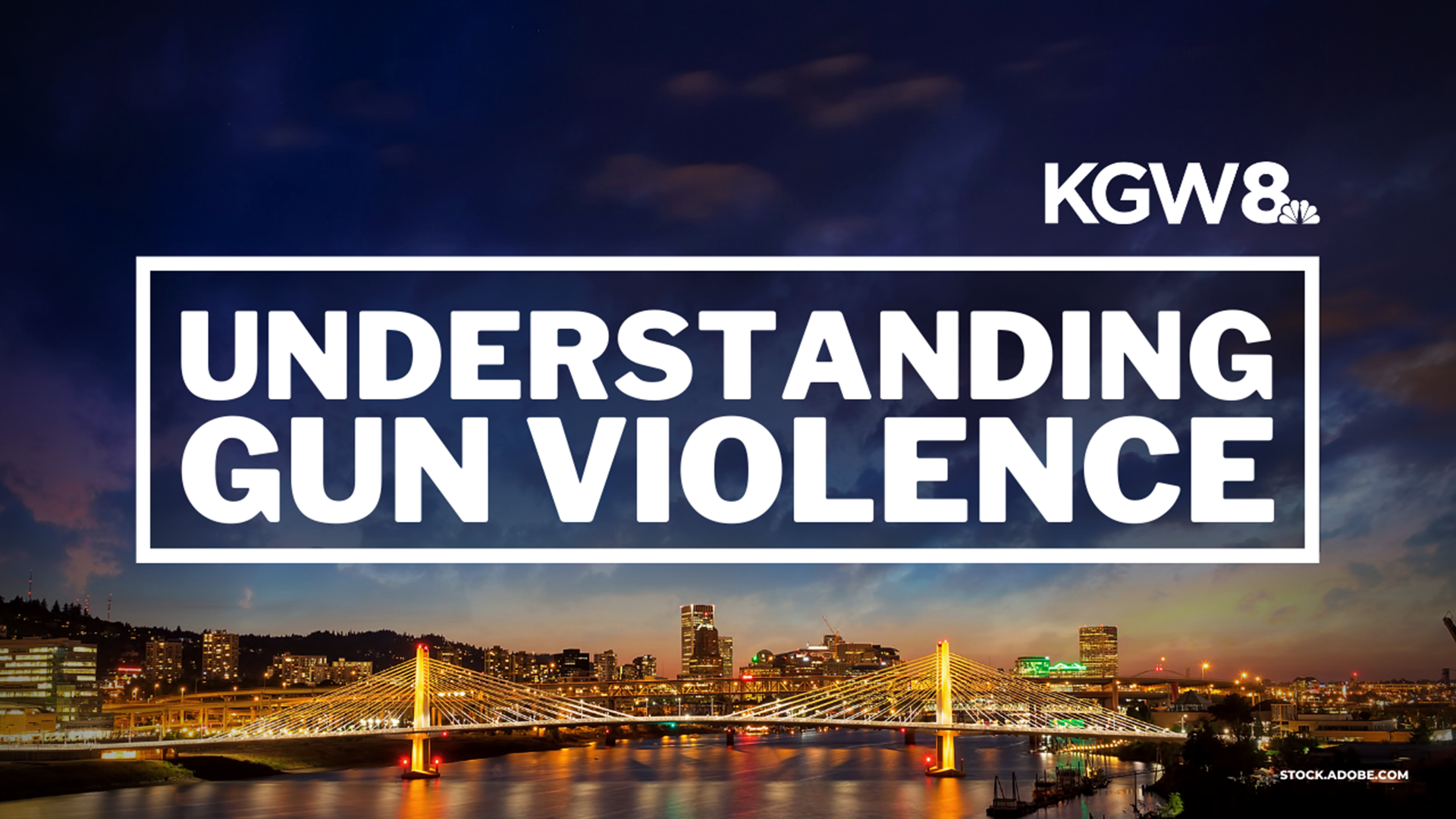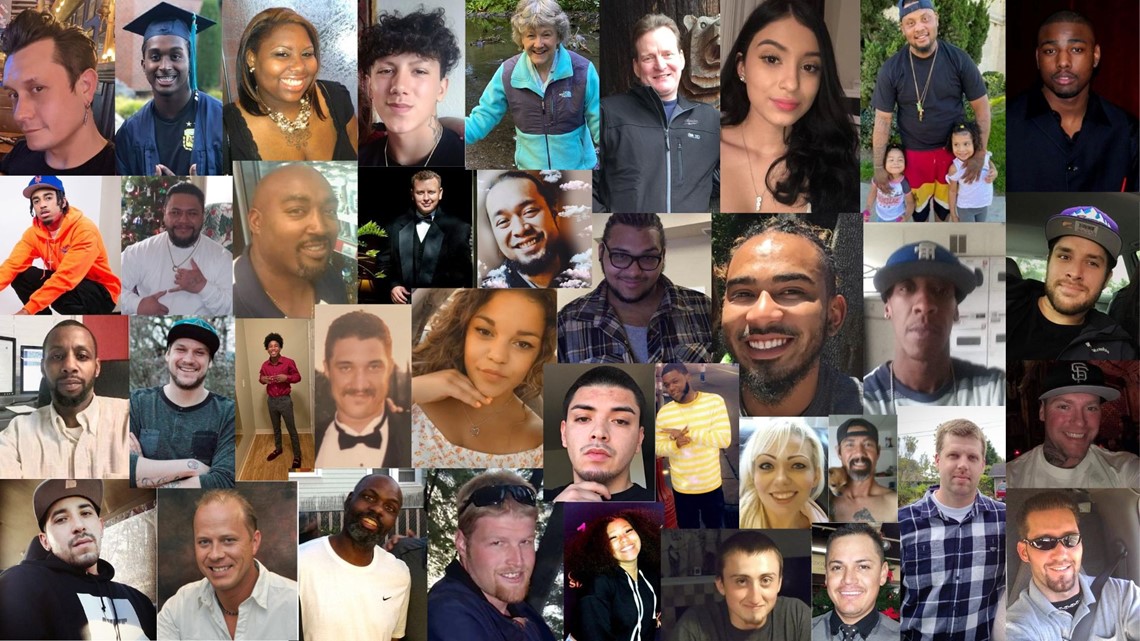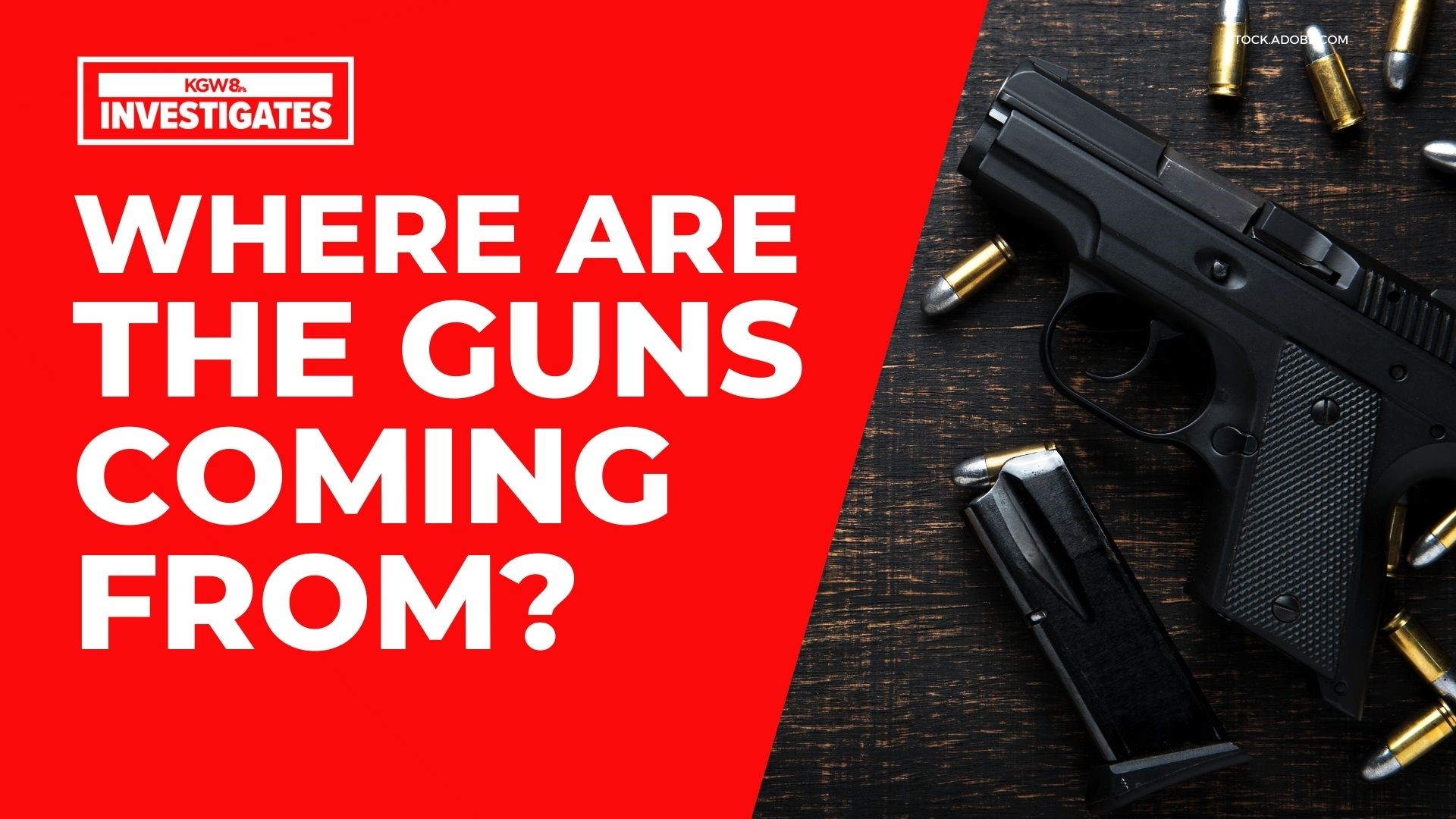Your questions answered about Portland's record-setting gun violence
Is social media contributing to the rise in gun violence? Where are the guns coming from? KGW's investigative team answers your gun violence questions one at a time.

2021 was a record setting year for gun violence in the city of Portland. Police responded to 1,294 shootings. Just two years earlier, the city had less than 400.
Last year, 90 people were killed on the streets of Portland, the vast majority of whom were killed by someone with a gun.
The KGW investigative team has been researching this issue one question at a time: Who's behind these shootings? Where are the guns coming from?
If you have a question you want KGW to answer, send us an email here.
Portland's 2021 homicide victims What we know
Since January 2021, KGW has been tracking the victims of Portland's gun violence. For many, the circumstances surrounding their deaths remain unclear — casualties of indiscriminate violence caught in the wrong place at the wrong time. Surviving family members are left to grieve, wondering if their son or daughter's case will ever be solved.
This is what we know about the 90 people who were killed on the streets of Portland last year.


Social media's role How online disputes can escalate
Last June, an argument on social media between two men and their respective girlfriends led to a late-night car chase and shooting in North Portland. 19-year-old Alexander Martinson died after being shot in the back of the head.
Martinson's death is just one example of the way social media disputes can escalate and lead to real-world violence.
Experts KGW spoke to said it's become more common to see online arguments spill out onto the streets. The key, they say, is interrupting the cycle of violence before it becomes deadly.
Where are the guns coming from? 1,033 guns seized in 2021
As shootings surge on Portland's streets, so have the number of guns seized by police.
Through the first 10 months of 2021, police confiscated 1,033 guns, more than the 866 police seized during all of 2020.
Police believe most crime guns in Portland are obtained illegally from three primary sources: They’re either stolen, bought through an illegal straw purchase, or picked up in the underground gun market.
KGW spoke to Sgt. Mark Friedman with the Portland Police Bureau and Jason Chudy from the Bureau of Alcohol, Tobacco, Firearms & Explosives (ATF), to learn how illegal guns are finding their way onto the streets.
Are these gang shootings? It's not that simple
Police estimate roughly half of the shootings in Portland are connected to gangs but that number can be hard to determine.
In 2017, Portland police stopped designating people as gang members, something the agency had done for roughly 20 years, after concerns the labels disproportionately affected minorities and created barriers for those trying to shun the gang lifestyle.
Additionally, police and prosecutors don’t track motive and causal factors for shootings.
Experts say gang violence is just one part of the problem — an estimated 25% of Portland's shootings involve disputes within the homeless community and another 25% are connected to crimes like robbery, domestic violence or road rage.
KGW spoke with Lt. Ken Duilio at the Portland Police Bureau and former gang member and nonprofit founder Lionel Irving to better understand how much of today's violence is related to gang conflicts.
Do rewards help solve crimes? Gathering case tips
For almost 40 years, Crime Stoppers of Oregon, a local nonprofit, has publicized unsolved crimes by offering cash rewards. That work supports grieving families and prosecutors alike — from 2010 to 2020, Crime Stoppers of Oregon helped solve 313 cases.
The Crime Stoppers tip portal allows people to remain totally anonymous when sharing suspect information via the website or mobile app. A person is given a code number and never asked for their name, even if they collect the reward.
RELATED: Do cash rewards help solve crimes?
Research has found cash rewards, no matter the size, help raise awareness and motivate some people to call.
KGW spoke with Henry Groepper, a retired Portland police officer and the chairman of Crime Stoppers of Oregon, and Dr. Arthur Lurigio, a criminal justice professor at Loyola University of Chicago, to learn how cash incentives impact crime tips.
The stories of those who died Iraqi refugee killed while driving for Uber
It's been more than one year since 23-year-old Dhulfiqar Mseer was shot and killed while working as an Uber driver in Northeast Portland but no suspects have been arrested in the case.
Family members say the pain of losing a son and a brother hasn't gotten any easier. Questions surrounding Mseer's death still remain.
Police believe Mseer was murdered in a gang-related ambush intended for someone else.
The FBI has offered a $15,000 reward in the case. Investigators think multiple people fired approximately 70 rounds, then got into two cars and took off.
Shell casings at the scene of Mseer’s murder have been matched to casings found at other gang-involved shootings in the area.
KGW spoke with the Iraqi victim's mother through an interpreter. She said her family doesn't feel safe anymore.
Search for solutions Do traffic barrels work to slow the violence?
As shootings skyrocketed across Portland, city leaders scrambled to stem the tide. One of the most visible examples came in the form of traffic barrels.
In October, city commissioner Jo Ann Hardesty ordered the Portland Bureau of Transportation (PBOT) to install traffic-calming devices across a six-block area in the Mt. Scott-Arleta neighborhood. The plan hoped to deter high-speed driving — some of which occurred after shootings in the area.
A KGW investigation found emergency calls about shootings in the area increased in the two months after the traffic barrels were installed, when compared to the two months prior.
KGW spoke to neighbors in the Mt. Scott-Arleta neighborhood who had mixed feelings about the pilot program.
Unsolved cases Families seek justice
Of the 90 homicides in 2021, less than half have been solved. Many victims' families wonder if they will ever see justice served.
Homicide detectives with the Portland Police Bureau say they are struggling to keep up with the caseload. The bureau recently added more detectives to the unit, growing from 10 to 18, but the historic rise in violence has continued to start 2022.
Research suggests shootings can be especially difficult to solve. That’s because they’re often connected to another crime like robbery — where the suspect and victim don’t know each other.
Unlike a murder without a firearm, such as a stabbing — which is more likely to involve an argument between people who do know each other and physical evidence is left at the scene.
KGW spoke to Detective Ryan Foote with the Portland Police Bureau and Jesseye Arrambide, whose son Adam was killed nearly a year ago.


